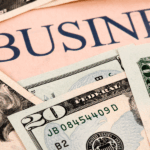Amid tension and expectation, Federal Reserve Chair Jerome Powell is set to deliver his final speech at the prestigious Jackson Hole Economic Symposium, as attention is drawn to how he will navigate both political and economic challenges during this significant event. The long-standing symposium presents a crucial opportunity for Powell to communicate the Fed’s policy direction, even as mixed economic indicators and political pressures converge on the monetary policy stage. Numerous observers anticipate his approach, with some commenting on the potential outcomes tied to his speech and broader implications for the Fed’s independence.
Anticipations have shifted over time as last year Powell provided clarity by signaling potential rate cuts when inflation appeared to be under control. However, the current situation presents more challenges, as mixed signals in the data complicate predictions. While inflation persists above the Fed’s 2% target, job growth has decelerated significantly, leaving Powell with fewer clear paths forward. This contrasts with previous years where Powell’s decision-making was largely driven by a consensus within the Fed. Most recently, he has encountered division within the board, demonstrated by the first “dual dissent” in three decades during a decision on interest rates.
Can Powell Deliver Stability Through Uncertainty?
Political pressures have intensified with President Trump’s severe criticism of Powell’s policies, urging a rapid decrease in rates amidst signs of inflation. Trump has further influenced the Fed’s future by filling key vacancies with supportive figures, potentially reshaping its trajectory. The replacement of Labor Statistics Commissioner Erika McEntarfer due to disappointing employment data underlines this effort. Amid these dynamics, Powell’s task of maintaining the Fed’s stability has grown increasingly complex.
How Might Powell’s Next Move Influence His Legacy?
Powell’s reputation rides on his decisions during a challenging period characterized by economic volatility. His handling of the Fed during the pandemic was initially lauded; however, some critiques suggest he was slow on inflation action in 2021 and too rapid in policy pivots come 2024. As Powell’s tenure is set to conclude soon, his legacy remains contentious, driven both by economic outcomes and his ability to safeguard the Fed’s independence from political encroachment.
Market watchers anticipate Powell’s forthcoming speech might reveal the Fed’s next policy direction amidst murky economic waters. Analysts speculate whether he will indicate readiness for rate cuts, sustain steady rates, or adhere to his characteristic cautious posture. The implications of Powell’s forthcoming words will be essential not just for interest rates but for the credibility and autonomy of the Fed in the face of political pressures.
Ultimately, Powell’s stewardship carries lasting influence on the Federal Reserve’s role and perception. His methodical approach may not have appeased all critics but illuminated the importance of balancing economic priorities with political neutrality. As Powell increasingly becomes a point of contention, his decisions highlight the crucial aspect of sustaining institutional independence while addressing an unsettled economic landscape.










